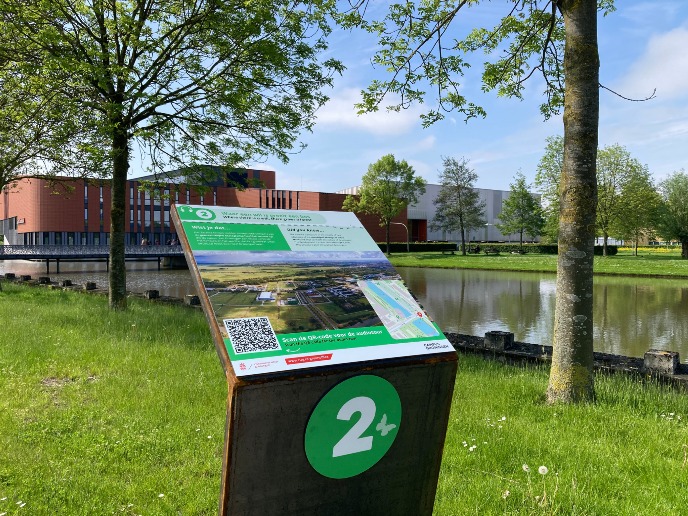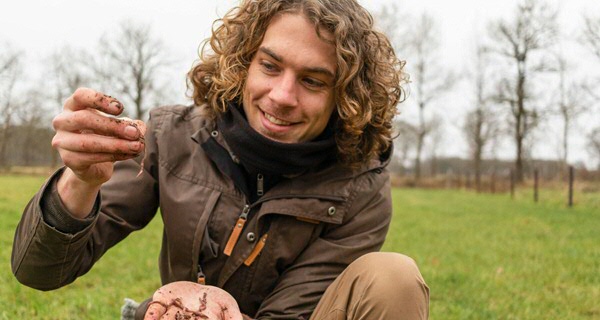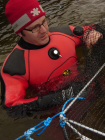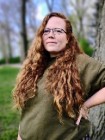22 May: International Biodiversity Day
International Biodiversity Day was created by the UN to give extra attention to the theme of biological diversity. For the University of Groningen, this is an important theme. On this page you will find an overview of the activities organized by the UG for this day, as well as research and articles on biodiversity.
Activities related to biodiversity
Biodiversity Audio tour at the Zernike Campus
You might be surprised that many opportunities relating to ecology and biodiversity can be found on Zernike grounds. If you would like to know more about this you can take the new audio tour at the Zernike Campus.
The tour starts at the decking next to the Duisenberg pond and works by scanning the QR-codes on the panels. Don't forget your earphones!

Research on Biodiversity
Various UG researchers are conducting research on biodiversity, including investigating the consequences of human activity on biodiversity, how new species emerge, and the mutual differences between animals or insects. Below, you can read more about a few of the studies conducted by these researchers.
How healthy is your soil? Measuring activity on soil quality, biodiversity, and the importance of earthworms
Earthworms do important work. They break down dead plant remains so that the nutrients can be used by other species. In turn, earthworms themselves serve as food for hedgehogs, moles, and birds. They thus play a major role in the food supply of both humans and animals. All the digging work that earthworms perform keeps the soil airy and healthy, and improves its ability to retain and drain water – which is particularly important now that climate change is causing increasing dry spells as well as heavy rainfall.
To gain more insight into the conditions of earthworms in the Netherlands, Jeroen Onrust and CurioUs? are jointly organized a large-scale nationwide worm counting event.
Read more about the worm counting event

Intertidal areas are of worldwide importance to sharks and rays
Intertidal areas are dynamic areas that fall dry at low tide and flood at high tide. They are known for their ecological richness, including a high level of biodiversity and large numbers of animals.
Until now, the ecology of the intertidal areas worldwide has mainly been studied from the perspective of birds. Less was known about the marine life. Biologists from the UG and NIOZ have analysed the scientific literature to identify the role of sharks and rays in intertidal areas. This shows that, in addition to birds, sharks and rays also have a significant role in these ecosystems.
Read more about the role of sharks and rays in intertidal areas

Prof Klemens Eriksson: Artificial reefs
Associate Professor Marine Ecology, Faculty of Science and Engineering
Since November 2021, 48 artificial reefs have been placed along Groningen's Lauwersmeerdijk to enhance the underwater nature of the Wadden Sea. Researchers have surfaced the reefs along the Lauwersmeerdijk for the first time to see what lives on and around them.
Read more about the artificial reefs (dutch only)

Sylvia de Vries: Solar parks and biodiversity
Faculty of Science and Engineering - GELIFES/Agricola
What effects does a solar park have on the ecology? What is the most nature-friendly way to construct a solar park? Biologist Sylvia de Vries hopes to answer these and many more questions in five years’ time. As a PhD student, she will study the construction of solar parks.
Read more about the solar parks
De Rudolf Agricola School for Sustainable Development
The Rudolf Agricola School for Sustainable Development is concerned with biodiversity, among other topics. Researchers involved in the Rudolf Agricola School include:
-
Christiaan Both: avian migration, evolutionary ecology, climate change, dispersal, population ecology.
-
Chris Smit: community ecology, plant communities, return of the wolf, trophic cascades.
-
Tjisse van der Heide: marine & freshwater biology.
-
Laura Govers: marine ecology, conservation ecology, coastal ecology, biogeochemistry, Wadden Sea ecology.
-
Raymond Klaassen: ecology and birds.
| Last modified: | 12 March 2024 09.24 a.m. |
More news
-
24 March 2025
UG 28th in World's Most International Universities 2025 rankings
The University of Groningen has been ranked 28th in the World's Most International Universities 2025 by Times Higher Education. With this, the UG leaves behind institutions such as MIT and Harvard. The 28th place marks an increase of five places: in...
-
05 March 2025
Women in Science
The UG celebrates International Women’s Day with a special photo series: Women in Science.
-
16 December 2024
Jouke de Vries: ‘The University will have to be flexible’
2024 was a festive year for the University of Groningen. In this podcast, Jouke de Vries, the chair of the Executive Board, looks back.
